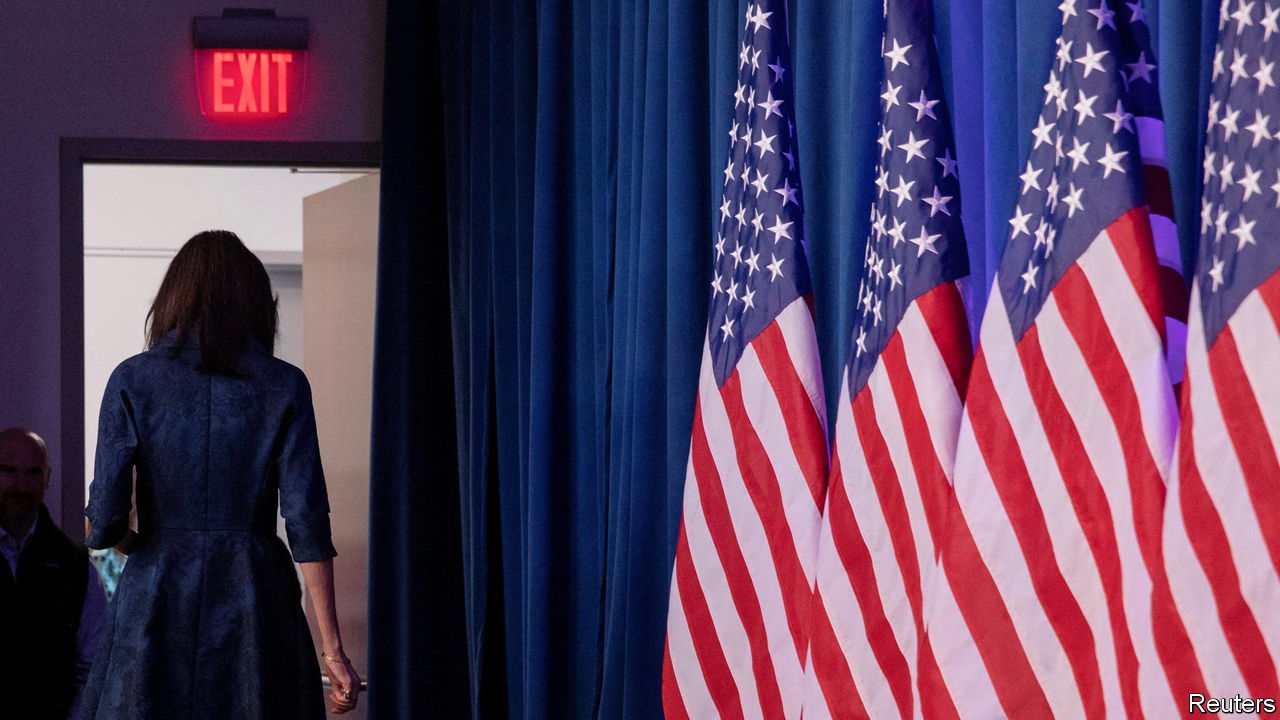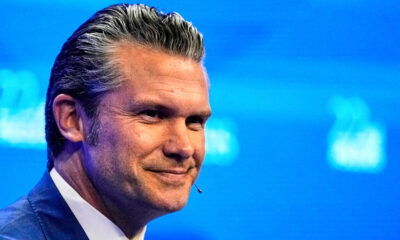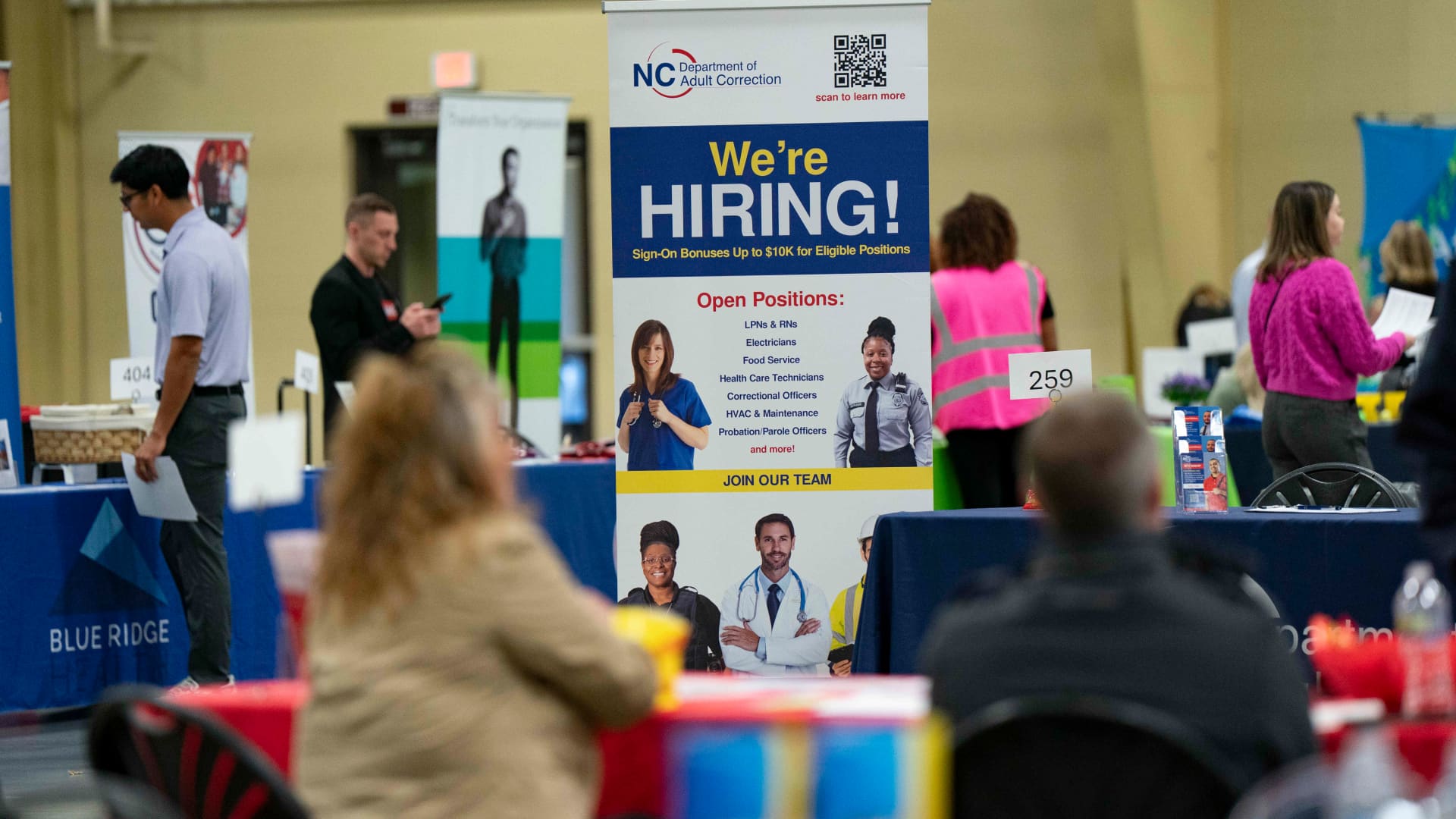WHEN DOES the act of hoping against hope go from admirable to absurd? Not yet apparently for Nikki Haley, the last woman left standing against Donald Trump and his seizure of the Republican Party’s presidential nomination. You can forgive Ms Haley for persisting through losses in the early primary states of Iowa and New Hampshire. But the indignity suffered on February 24th—a 20-point walloping in the primary election in South Carolina, the state she was governor of for six years—should have proven fatal.
And yet even out of those grim statistics, Ms Haley managed to extract something hopeful: “Today in South Carolina, we’re getting 40% of the vote. That’s about what we got in New Hampshire. I’m an accountant. I know 40% is not 50%. But I also know that 40% is not some tiny group.” She vowed to carry on her campaign until at least March 5th, also known as Super Tuesday, at which point another 21 states and territories will have conducted their elections. The embers of optimism present today will, in all likelihood, be extinguished by then.
Why continue? The first reason is that Ms Haley simply can. In America, moribund presidential campaigns are not usually dealt the coup de grâce by voters but by donors. The cash-burning machines simply run out of fuel. The central problem of Ms Haley’s campaign is that she is extraordinarily popular with the Trump-despising donors of her party—who showered her with $16.5m in contributions in January alone—but unacceptable to the Trump-adoring base of her party.
You could see this dilemma on vivid display at her election-night party held in a grand hotel in Charleston, South Carolina: fewer than 40 supporters had managed to tear themselves from the spectacular array of catered dips before them—crab, pimento cheese, spinach and artichoke—and enter the ballroom by the time the race was called, just seconds after the polls closed. (Later the room would fill up with supporters, who managed a surprisingly spirited cheer when the television screens showed that Ms Haley’s margin of loss had narrowed to only 16 points.) Like her catering budget, Ms Haley’s advertising budget was significantly higher than Mr Trump’s, too. Ms Haley and her allied political groups spent $8.4m on advertising in the state; Mr Trump spent almost none by comparison. The former governor embarked on a two-week bus tour; the former president flew in for a few rallies and quickly departed. All the extra expenditure of time and money simply did not matter.
Ms Haley and her advisers are fuzzy about how exactly this starting sequence of consecutive losses will ultimately spell victory. “We know that this is an uphill battle. We know that the road is difficult. We know that the math is challenging,” says Betsy Ankney, Ms Haley’s campaign manager. But Ms Ankney argues that because Mr Trump is unelectable in the general election, Ms Haley has an obligation to remain in the race for as long as she can. Indeed, in head-to-head polls against President Joe Biden, Ms Haley runs, on average, several points ahead of Mr Trump. Some polls even show her leading the hypothetical national popular vote by lopsided margins of 16 points or so.
Such margins are unheard of in modern-day, hyperpolarised politics; they probably do not reflect an actual possible result in November as much as they do the wide discontent felt with the two elderly candidates the major parties are preparing to nominate. In her stump speech, Ms Haley is fond of citing these polls as proof of her viability (though she scrupulously ignores any primary polling, which by our tally, has her down 57 points to Mr Trump). But winning the general election requires winning the primary election. That requires winning multiple state contests; but Ms Haley is struggling to win even one.
Her refusal to quit plainly enrages Mr Trump, who has declared that she and her enablers are personae non gratae in MAGA-land. “I feel no need to kiss the ring,” she said in a speech on February 20th teased to reporters as a major update on the state of the race (the kind of language used when a candidate is planning to drop out). Mr Trump’s needs may be more urgent than mere vanity. If he is declared the presumptive nominee his campaign lieutenants—including his daughter-in-law—could take over the leadership of the Republican Party. This could allow him to use the party to fund his considerable legal bills, now that Mr Trump is running low on the donor-provided funds that he has used for the last three years.
Bless her heart
The tortured, seemingly inevitable, demise of Ms Haley’s presidential campaign mirrors the fate of the increasingly endangered Reaganite wing of the party. Ms Haley is an internationalist who emphatically makes the case that America needs to continue providing military aid to Ukraine; followers of Mr Trump are withholding funds while their leader muses about encouraging Russian attacks on NATO allies. She frets about the national debt, while Mr Biden and Mr Trump studiously avoid the subject. She sees America as already great and good, while Mr Trump venomously attacks it, presenting himself as its only saviour. “Your victory will be our ultimate vindication, your liberty will be our ultimate reward and the unprecedented success of the United States of America will be my ultimate and absolute revenge,” he said at an apocalyptic speech delivered to CPAC, a conservative gathering, on the same day as the South Carolina primary. Trumpism is often an inversion of the spirit of John F. Kennedy’s famous inaugural address. “Ask not what your country can do for you,” Mr Trump asks of his fellow citizens: “Ask what your country can do for me.”
Understand these stakes and Ms Haley’s refusal to bend the knee makes more sense. In Congress, too, her faction is being broken. In the House of Representatives, sensible Republicans who might have helped reconstitute a post-Trump future like Mike Gallagher and Patrick McHenry are choosing to leave without seeking re-election. The House leadership, thoroughly aligned with Mr Trump, is utterly shambolic and unable to complete basic tasks of governance. In the Senate, this takeover has been slower due to lower attrition rates, but it is happening all the same. Mitch McConnell, the Republican Senate leader, thinks that Ukraine needs continued American aid and that Mr Trump disgraced himself on January 6th 2021. That places him in the minority of his own party. His command of his fellow senators, given his age and the increasing possibility of Mr Trump’s return, is slipping away.
Many ambitious Republicans have chosen to turn accommodationist with Mr Trump despite their consciences. Indeed, Ms Haley was guilty of this herself: going from opposing him in 2016, to joining his administration, to criticising him, before pledging not to challenge him in the presidential election—then challenging him while studiously avoiding any criticism of him, to finally emerging as a strong critic of Mr Trump’s character and record. Courage, even if it arrives late, is commendable. It is just that in this case, it may not make any difference.■
Stay on top of American politics with The US in brief, our daily newsletter with fast analysis of the most important electoral stories, and Checks and Balance, a weekly note from our Lexington columnist that examines the state of American democracy and the issues that matter to voters.

 Accounting1 week ago
Accounting1 week ago
 Economics1 week ago
Economics1 week ago
 Blog Post5 days ago
Blog Post5 days ago
 Economics1 week ago
Economics1 week ago
 Personal Finance1 week ago
Personal Finance1 week ago
 Economics7 days ago
Economics7 days ago
 Personal Finance1 week ago
Personal Finance1 week ago
 Finance1 week ago
Finance1 week ago






















